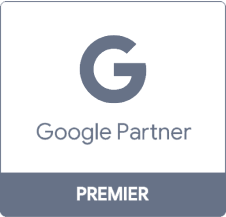Inbound Marketing vs SEO: Which is Better for Your Website?
On this page, we’ll explain the value that SEO and inbound marketing can bring to your website, and examine the inbound marketing vs SEO argument a little more in depth. By the time you finish reading this article, you should have a better idea of what these tactics involve, and why they are necessary for online marketing.
Our digital marketing campaigns impact the metrics that improve your bottom line.
See More Results
WebFX has driven the following results for clients:
$6 billion
In client revenue
24 million
Leads for our clients
7.14 million
Client phone calls
What is inbound marketing?
Inbound marketing refers to marketing activities that take place after a visitor finds your website or learns about your brand. Some common inbound marketing methods are social media, videos, blogging, email marketing, and SEO content writing and marketing (whitepapers, guides, how-tos, etc.).
Unlike traditional marketing, which is sometimes called “interruptive,” inbound marketing provides targeted messages and information after a website is found. Instead of trying to broadly appeal to audiences through commercials or advertisements, inbound marketing displays calls to action (or CTAs) after someone has already found your website or services.
Essentially, inbound marketing is all about giving your target audience what they need when they need it. Instead of focusing on trying to bring in traffic that may or may not be relevant, inbound efforts make the most of the traffic you want and need by offering them content or information that is desirable, helpful, and interesting.
What is SEO?
SEO, which is short for “search engine optimization,” refers to any act taken to better optimize your website for ideal performance in search engines. SEO is a broad term covering a variety of actions, and quite a few factors on your website contribute to SEO.
Generally speaking, SEO is anything you do to increase the likelihood of your site ranking higher, or more frequently, in search results. If you write keyword-rich product copy with the goal of ranking better for the keywords in that paragraph, you are essentially optimizing your site. But SEO doesn’t consist of just one or two things: it’s a larger grouping of multiple tactics that work together to improve your website.
To have a well-optimized website, you need to meet a number of requirements. Your targeted keywords need to be used the right number of times, your page titles need to be optimized, your site navigation and URLs need to be clean and easy to understand, you need to have high quality links… the list goes on and on. SEO is also constantly evolving, so new methods are popping up while older ones fall out of favor frequently.
How are digital marketing and SEO different?
On the surface, it may seem like inbound marketing and SEO are very different. Inbound marketing focuses on converting traffic into leads or buyers by offering the right content or experience, while SEO focuses on attracting more traffic by improving your website’s ranking. However, there is one thing that these two methods have in common: the human element.
SEO isn’t just about improving your ranking – it’s about getting your website in front of more visitors, reaching more potential customers, and helping more people find what they are looking for. Similarly, inbound marketing is about giving those visitors and leads what they are looking for, and helping them solve their problems.
Inbound marketing and SEO focus on different stages of the selling process. SEO is about attracting, while inbound marketing does the convincing. However, when done well, they come together to form a cohesive, effective sales strategy.
Which is better for your website?
When it comes to inbound marketing vs. SEO, your website should have strategies for both —not one or the other. Both are extremely important for not only attracting relevant traffic, but also for converting those visitors into customers.
Without SEO, it’s unlikely that you will get the right kind of traffic you need. SEO increases the visibility of your website, and ensures that you rank for the keywords most relevant to your business. Without SEO, you would have to rely on word of mouth, links, or paid advertising to be found.
Without inbound marketing, your SEO efforts just wouldn’t pay off. Customers want and need reasons to trust you, and to choose your business over the many others out there. By giving them content (blogs, articles, downloads) or information, or by interacting with them (social media, email marketing), you’re setting yourself apart from the competition.
Inbound marketing without SEO is pointless because it means your great content may not be found quickly or reliably enough to make a difference. SEO without inbound marketing is ineffective because customers can and will leave websites that don’t meet their needs, no matter how well they rank. That’s why we recommend both.
We foster and form long-term partnerships so that your business has long-term results.
Over 90% of WebFX clients continue partnering with us into year 2 of their campaign.
Hear from Our Happy Customers

How can I get started with SEO and inbound marketing?
Here are a few tips to get started with search engine optimization or inbound marketing (or both!) on your website:
- Ensure that you’ve taken every opportunity to get your keywords in place. This includes on-page content, title tags, image alt tags, in navigational links, and so on. Although it doesn’t help with ranking, you should also put them in your page meta descriptions, too.
- Make sure that any content you develop is easily located via the front page (or any landing pages) of your website. If no one can find it, no one can benefit from it!
- Encourage and ask for links from relevant websites. The more links your site receives from authorative websites, the better it will rank.
- Make sure you are sharing your content regularly on social media. Although links from social media don’t help your SEO directly, the exposure you receive there can result in interactions with potential customers, and the spread of your content to other sites that may want to link you.
- Before you add a new piece of content, make sure it’s relevant and helpful, and actually solves a problem that a customer might have. Don’t just write a blog post because you like the topic. Will it help someone? Is it useful?
- Inbound marketing is all about gaining trust to eventually close a sale. You probably won’t be able to sell something to a consumer the first time they see your site or hear your brand name. Don’t inundate them with pop-ups the first time they visit – but consider doing some targeting for repeat customers.
You can also read popular blogs to get advice on SEO and inbound marketing, as well as other online marketing topics. The WebFX blog is a great place to start!
Need help with your SEO and digital marketing?
If you need an online marketing agency or inbound marketing partner, WebFX is the right choice. We can create a customized marketing strategy for you that gets your website found, and puts your content in front of the right visitors at the right time.
Learn more about our SEO plans and inbound marketing services by contacting us online today!
Related Resources
- B2B Inbound Marketing
- Content Marketing vs. Inbound Marketing
- Inbound Leads, Outbound Leads, and Their Roles in Marketing
- Inbound Marketing Statistics: 33+ Inbound Marketing Stats
- Inbound Marketing vs. Outbound Marketing
- What is Inbound Lead Generation?
- What is Inbound Marketing?
- 2024 Inbound Marketing Strategies [3+ Strategies for Success]
- 10 Reasons Why Inbound Marketing Works
- 6 Inbound Marketing Examples That Drive Revenue







